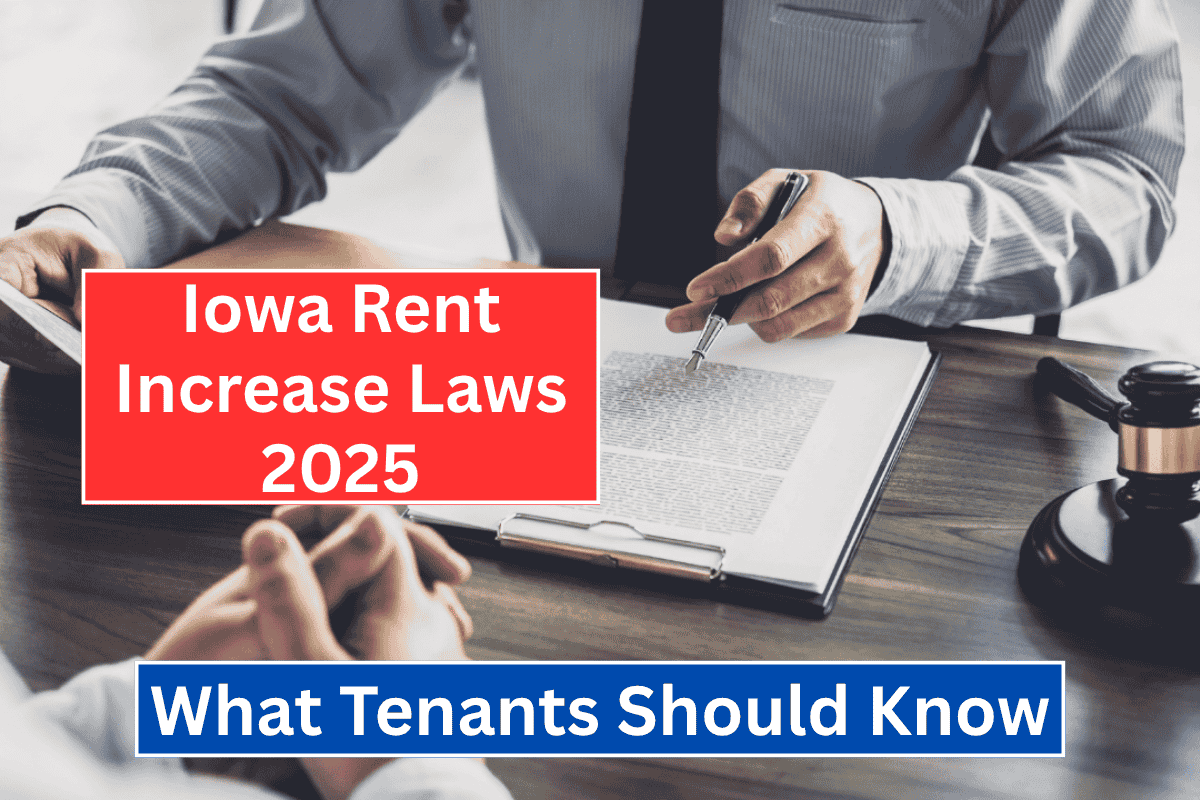Rent increases in Iowa are governed by a set of rules designed to protect both landlords and tenants. If you live in Iowa or are planning to rent a home there, it’s important to know these laws to avoid confusion or disputes.
This guide explains how rent increases work in 2025, when they’re allowed, and what rights tenants and landlords have under the law.
Rent Increase Rules in Iowa
In Iowa, landlords must follow specific steps before they raise the rent. For tenants who pay rent monthly without a fixed lease, landlords must give a written 30-day notice before increasing the rent. This allows renters time to decide whether to accept the new rate or look for a new place.
Rent cannot be raised in a way that discriminates against certain people. Under both state and federal laws, like the Fair Housing Act, landlords can’t raise rent because of someone’s race, religion, gender, disability, or family status.
When Are Rent Increases Not Allowed?
Rent increases are not allowed if the landlord is trying to punish the tenant. For example, if a tenant complains about bad living conditions or reports the landlord to a housing authority, the landlord cannot legally respond by raising the rent or trying to evict the tenant.
This is known as “retaliatory action,” and it’s illegal in Iowa.
Also, rent increases during an active lease are not allowed unless the lease agreement says it’s okay.
Rent Control in Iowa
Iowa does not have a rent control system. That means landlords are free to decide how much they want to charge for rent once a lease ends. But again, they must provide proper notice and cannot discriminate or retaliate.
How Much Can Late Fees Be?
Late payment fees depend on the amount of monthly rent. If your rent is less than $700, the landlord can charge up to $12 per day, but no more than $60 per month. If your rent is over $700, the fee can be up to $20 per day. These limits are set to keep things fair for tenants.
Security Deposits in Iowa
Landlords in Iowa can charge a security deposit of up to two months’ rent. This money is to cover damage beyond normal wear and tear. The landlord must return this deposit within 30 days after the lease ends, along with a list of any deductions. If they don’t, tenants can take legal action.
Ending a Lease Agreement
Tenants or landlords must give a written 30-day notice to end a month-to-month rental. If the lease has a fixed end date, it usually ends automatically. If a tenant leaves early without legal cause, they might have to pay the remaining rent unless the landlord finds a new tenant.
However, some reasons allow tenants to end a lease early without a penalty, like:
- Unsafe living conditions
- Domestic violence
- Being called to active military duty
Legal Reasons for Eviction in Iowa
Landlords can only evict tenants for legal reasons such as:
- Not paying rent (after a 3-day notice)
- Breaking lease rules (like keeping pets when not allowed)
- Staying after the lease ends without renewing
The eviction process involves going to court, and tenants can defend themselves. A landlord must follow legal steps, or they could face penalties.
Protection Against Unfair Evictions
Tenants are protected from being kicked out just because they exercised their legal rights, like reporting a health issue in the apartment. This is known as “retaliatory eviction,” and it’s not allowed under Iowa law.
Fair Housing Laws
Landlords in Iowa must treat all tenants equally. Discrimination based on race, religion, gender, disability, family size, or where someone comes from is illegal. If tenants believe they’re being treated unfairly, they can file a complaint with the Iowa Civil Rights Commission.
Where to Get Help
If you’re having trouble with your landlord or don’t understand your rights, Iowa Legal Aid is a free service that helps low-income tenants. They can answer questions, help with legal papers, or even represent you in court.
You can also visit websites like Iowa Legal Aid or iProperty Management to read more about Iowa’s rental laws. These sites are good for both tenants and landlords who want to stay informed and avoid problems.
In summary, Iowa’s rent increase laws for 2025 are clear: rent can go up, but only with proper notice and for fair reasons. Tenants have the right to a safe home and cannot be punished for standing up for themselves.
Landlords must follow legal steps for rent increases, evictions, and lease changes. Knowing these rules helps both sides build a respectful and fair rental relationship.












